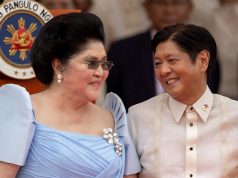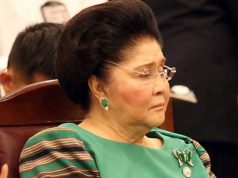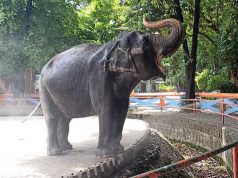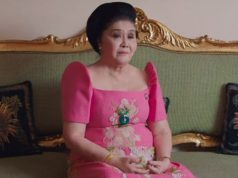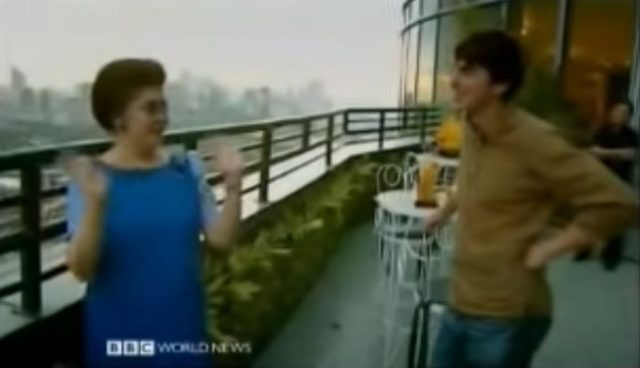
An old clip resurfaced on Twitter and earned new viewers as it features a British host visiting tourist destinations in the Philippines and interviewing notable personalities including former first lady Imelda Marcos and retired Army general Jovito Palparan.
The clip came from the BBC Travel Documentary titled “Manila to Mindanao” released on March 5, 2009. It was hosted by British television presenter Simon Reeve.
On the BBC’s website, the documentary’s description reads: “Simon Reeve leads a team of journalists on a journey of discovery in the Philippines, from the staggering scenery of the mountainous rice terraces in the north, to the war-torn Muslim regions of the south.”
The original hour-long episode, however, can no longer be accessed on the website.
A YouTube user managed to secure a copy of the show and uploaded it in four parts on the platform on April 8, 2011.
The snippet that circulated on Twitter last weekend was part 2 of 4 of the documentary.
Here, Reeve interviews Imelda Marcos in a lavish flat in Taguig.
He describes the Marcos matriarch as “part glamorous assistant, part mother of the nation, occasional government minister and constant presidential companion.”
Reeve asks her about the paintings and other sculptures in her living room. He also inquires how her late husband, dictator Ferdinand, managed to have enough money to purchase paintings by Picasso, Gauguin and Michelangelo, among others.
“My husband was the lawyer of gold mines and also a gold trader. And he loved gold so much,” Imelda says.
Asked if it is sourced from the Philippine treasury, Imelda claims it was her husband’s money.
“I knew it was his money because I saw this gold already in his home,” she says, suggesting that Marcos was already wealthy and a good gold investor when she met him.
Imelda also hands Reeve an envelope with copies of seemingly important documents. When Reeve gestures to capture them on video, Imelda tries to take the papers back from him.
But she does allow the British guest to read a part of a page.
“We can’t show you but it shows deposits in the name of Ferdinand Marcos in a bank in Brussels and it’s for $987 billion,” Reeve says. He then asks, “Can we show [it to] the camera?
Imelda then says, “No” and then “sige na o.” in jest as she withdraws the papers from him.
“Such a huge sum surely can’t be genuine, but with Imelda, who knows?” Reeve then says in a voiceover. “Like armies of lawyers, I fail to unravel the mystery of Imelda’s billions.”
Some Twitter users cut the video and shared the snippet where Reeve reads the bank document, the contents of which Interaksyon cannot independently verify.
oops 🙊 pic.twitter.com/Qlq5DwruVX
— Renz Saavedra (@SirRenzSaavedra) October 10, 2021
In the video, Reeve quotes Imelda in his narration:
“He was rich, oh definitely.’ And that has always been Imelda’s line. Her husband, Ferdinand Marcos, was a ‘staggeringly successful investor in gold. He made billions. We didn’t use the Filipino treasury as our own personal cash machine and if you think we did, prove it. And so far, despite hundreds of court cases no one really has’.”
Reacting to the snippet, Twitter users recall Imelda is out on bail a “guilty” verdict nine years after the documentary was released.
“Ba’t hindi ‘to nakulong?” a Twitter user wrote.
“Kung hindi ito ninakaw, sa’n galing ang ganyang kalaking pera? Wala naman silang negosyo,” another wrote.
She was sentenced to prison for seven counts of graft in relation to private organizations she was found to have created in Switzerland while a first lady.
Law enforcement authorities, however, have yet to arrest her due to her health and age. She is 92 years old.
Reeve also meets Jovito Palparan, an Army general nicknamed “The Butcher,” known for his bloody campaign against young activists and human rights workers he claimed were rebels with the communist New People’s Army.
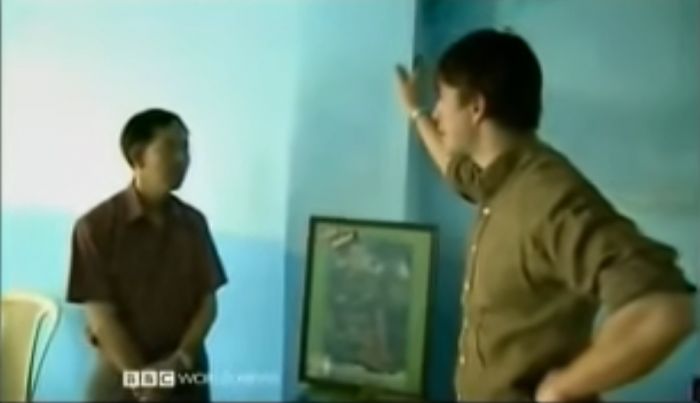
Asked if he was ashamed for being given the monicker, Palparan says, “Initially, but I have to live with that because this is war.”
“He’s just standing there like yeah, not knowing he would get arrested eventually,” a YouTube commenter wrote.
For Palparan, he cannot be directly blamed for the accusations. “There were no incidence to prove that I was involved or my men are involved,” he tells Reeve. “But in this kind of war… it seems to me that these are necessary incidents.”
“But killing human rights workers, students, young activists? You’re saying that’s part of the war” Reeves asks.
Palparan right away replies, “Well, they are going into a cover of being just human rights advocates, but they are in fact very much involved in fighting, they just go back and forth, you know.”
When Reeves confronts him with a “definitive” Supreme Court decision stating Palparan had participated “in an abduction,” Palparan claims, “Well, that’s according to them… but it’s more of deduction, more of a presumption out of the alleged evidence and witnesses that they have.”
Palparan was convicted years later of kidnapping and serious illegal detention, sentenced to life imprisonment in 2018. He is also accused of dozens of human rights abuses and enforced disappearances.





